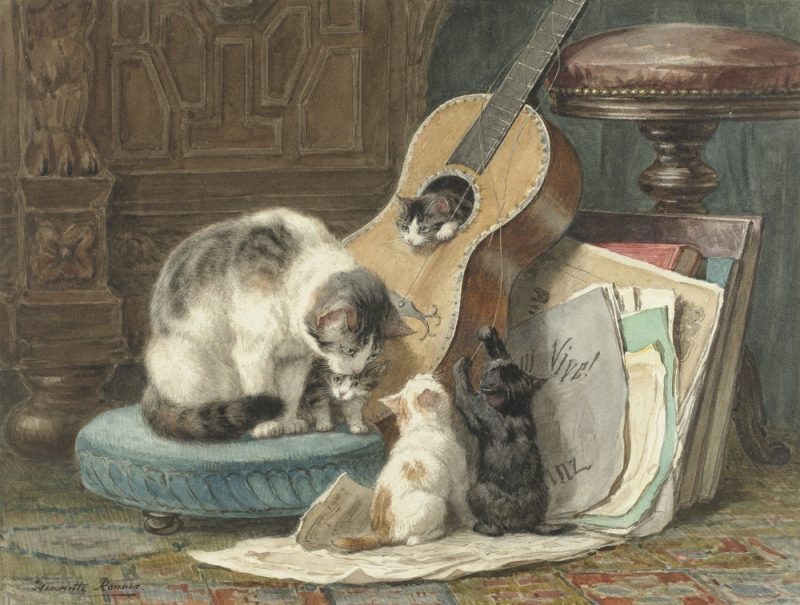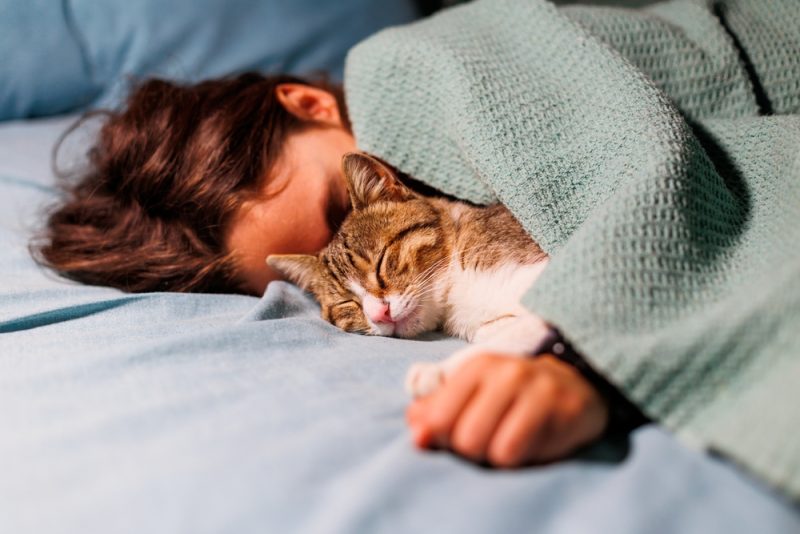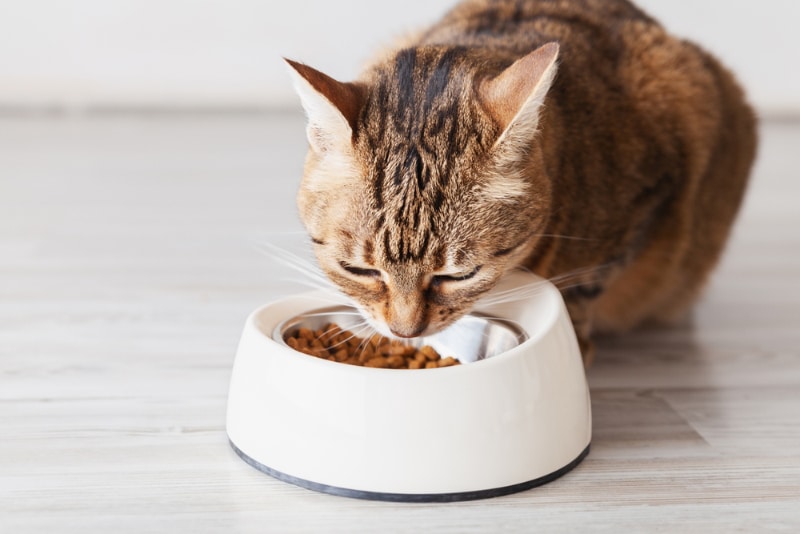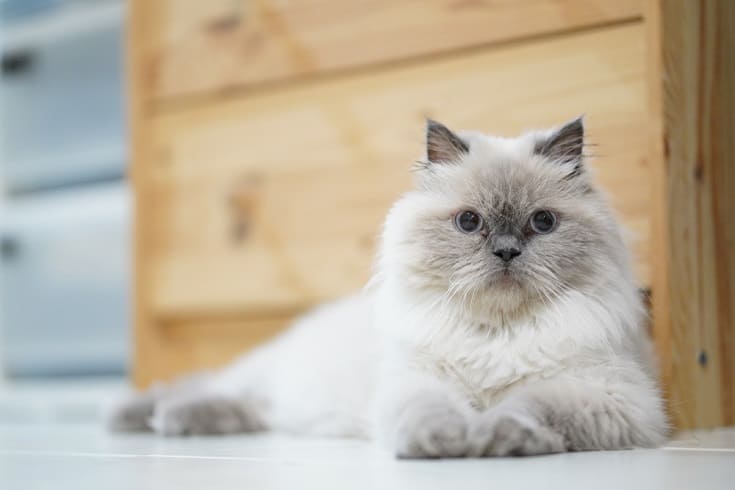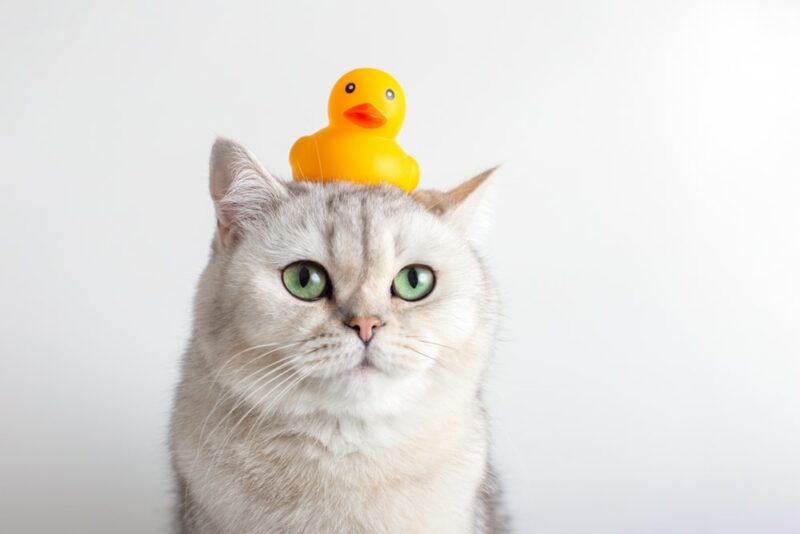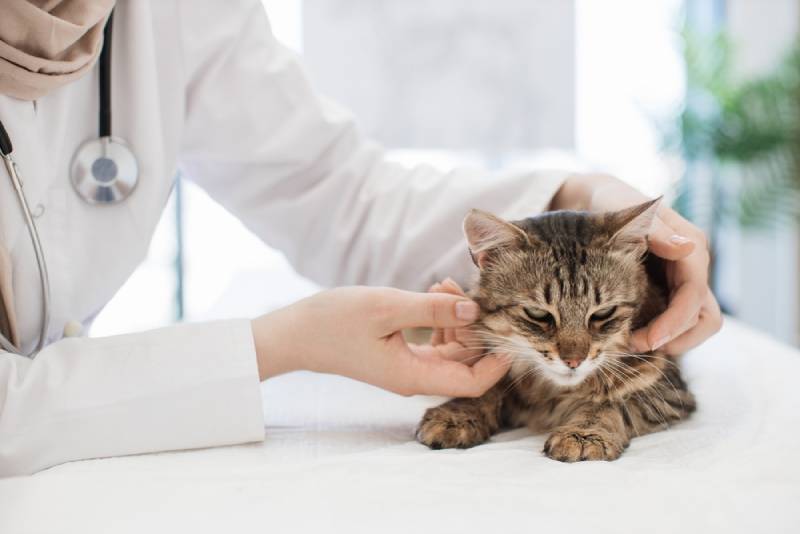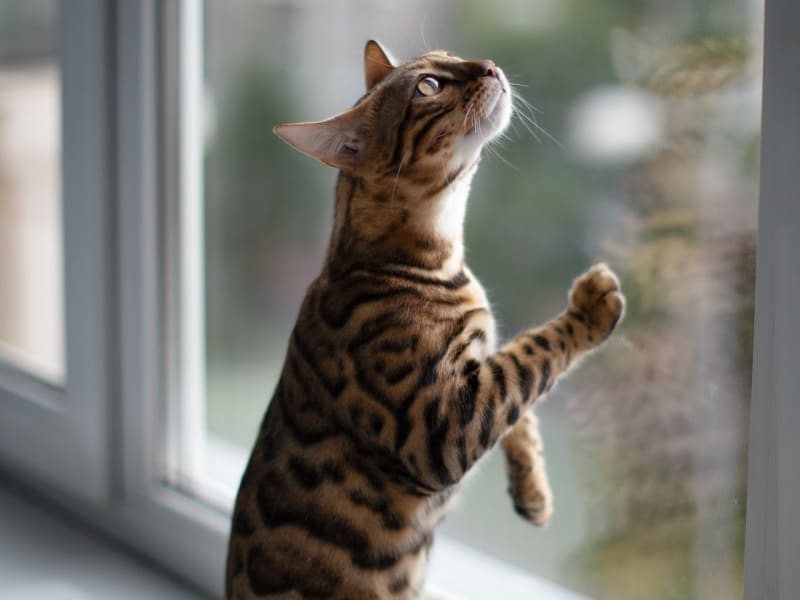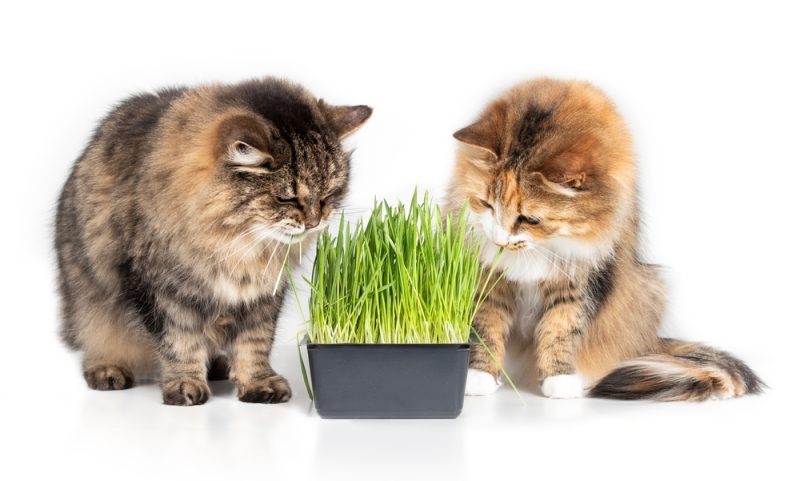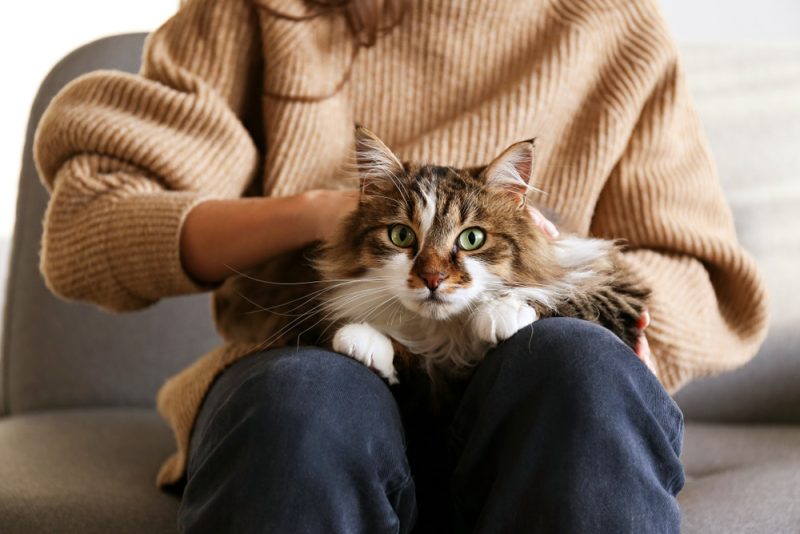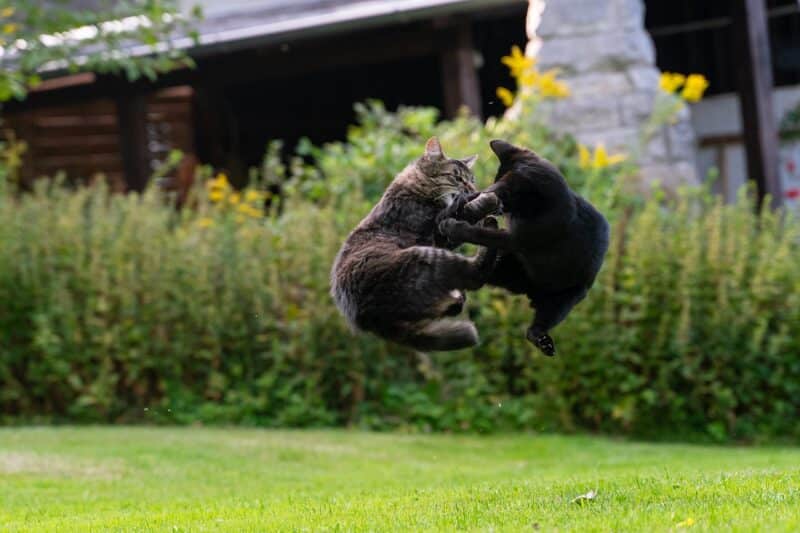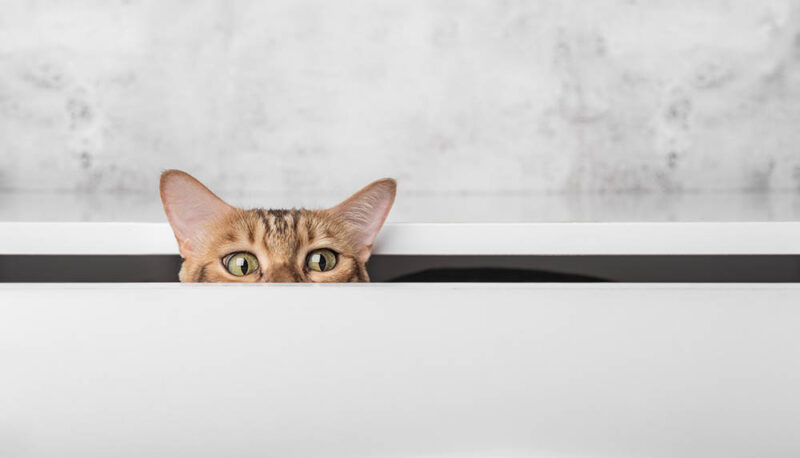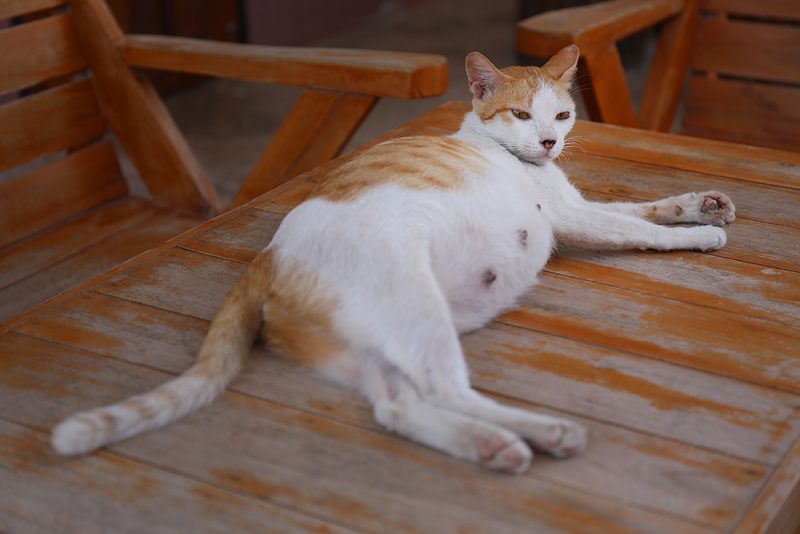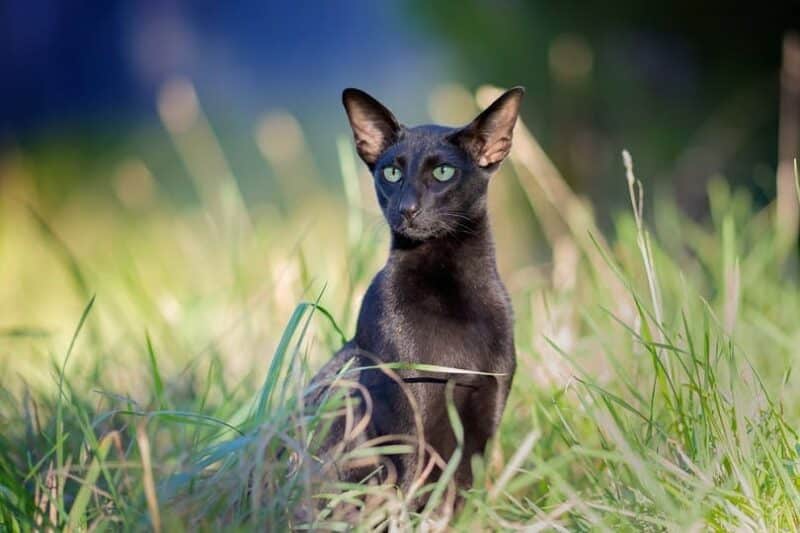Cats have been among humans’ favorite companions for centuries, and their steady presence throughout the years has been noted in more than a few mediums. Artists in particular have fallen for the stoic nature and sedate personas of our feline friends. It’s no surprise that cats have appeared in paintings since the 1600s, if not earlier.
This list contains 20 of the most famous cat paintings throughout history. Whether they were created by the well-known Picasso or a less-famous artist, there are works to suit a wide range of tastes.

The 20 Famous Cat Paintings
The 1600s
1. “Barber Shop With Monkeys and Cats”
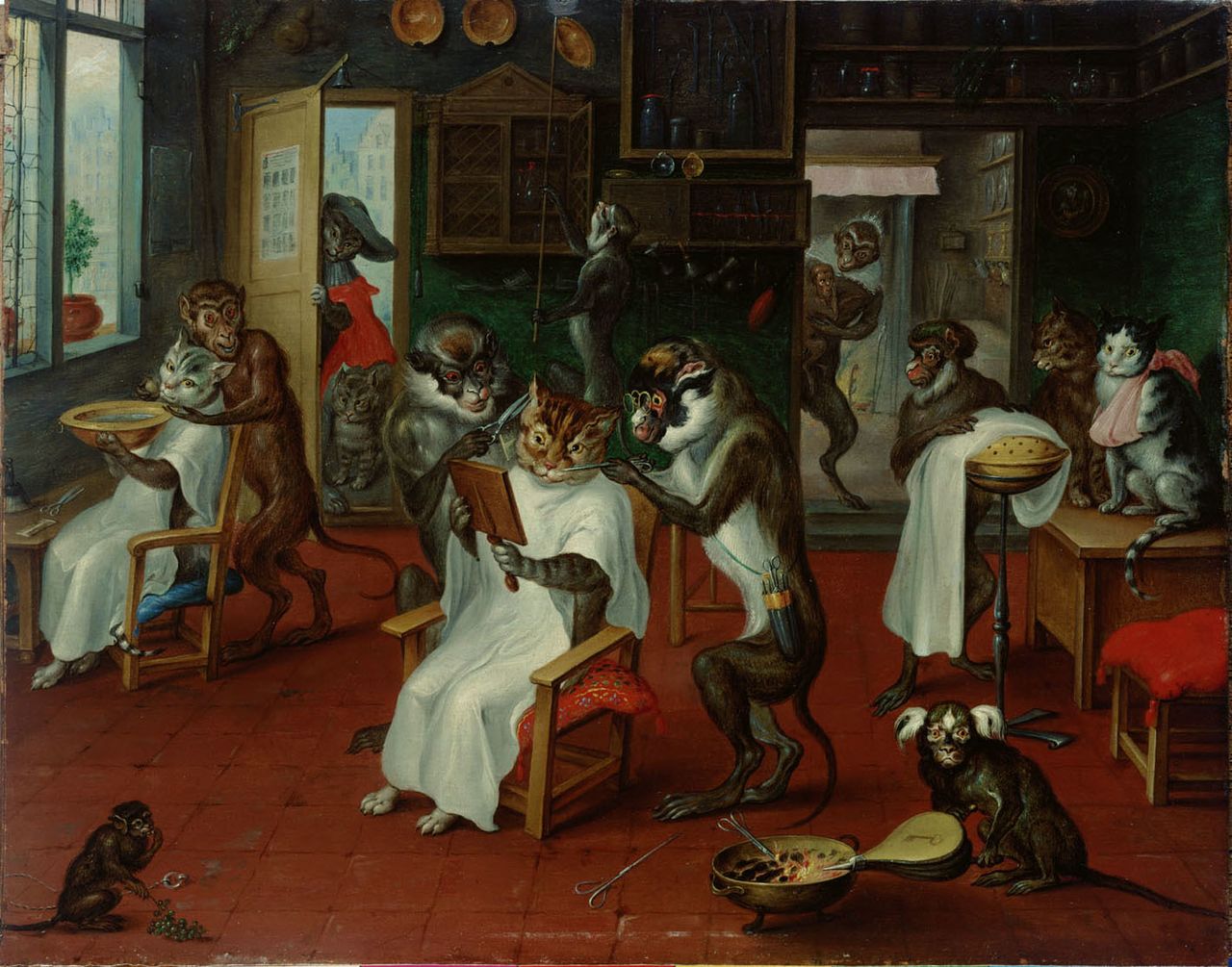
| Artist: | Abraham Teniers |
| Date: | 1647 |
| Medium: | Oil on copper |
Painted in the 1600s by Abraham Teniers, “Barber Shop With Monkeys and Cats” is an anthropomorphic painting featuring cats and monkeys instead of human subjects. While the barbershop setting is familiar, the monkeys and cats in the places of the human staff and customers give this painting a curious edge over art that is more realistic.
Despite the fantastical setting, Teniers managed to make the scene look real. Not only do the feline customers and monkey staff look happy and professional, but the barbershop also looks like one that you would find on an everyday street.

The 1700s
2. “The Black Cat”
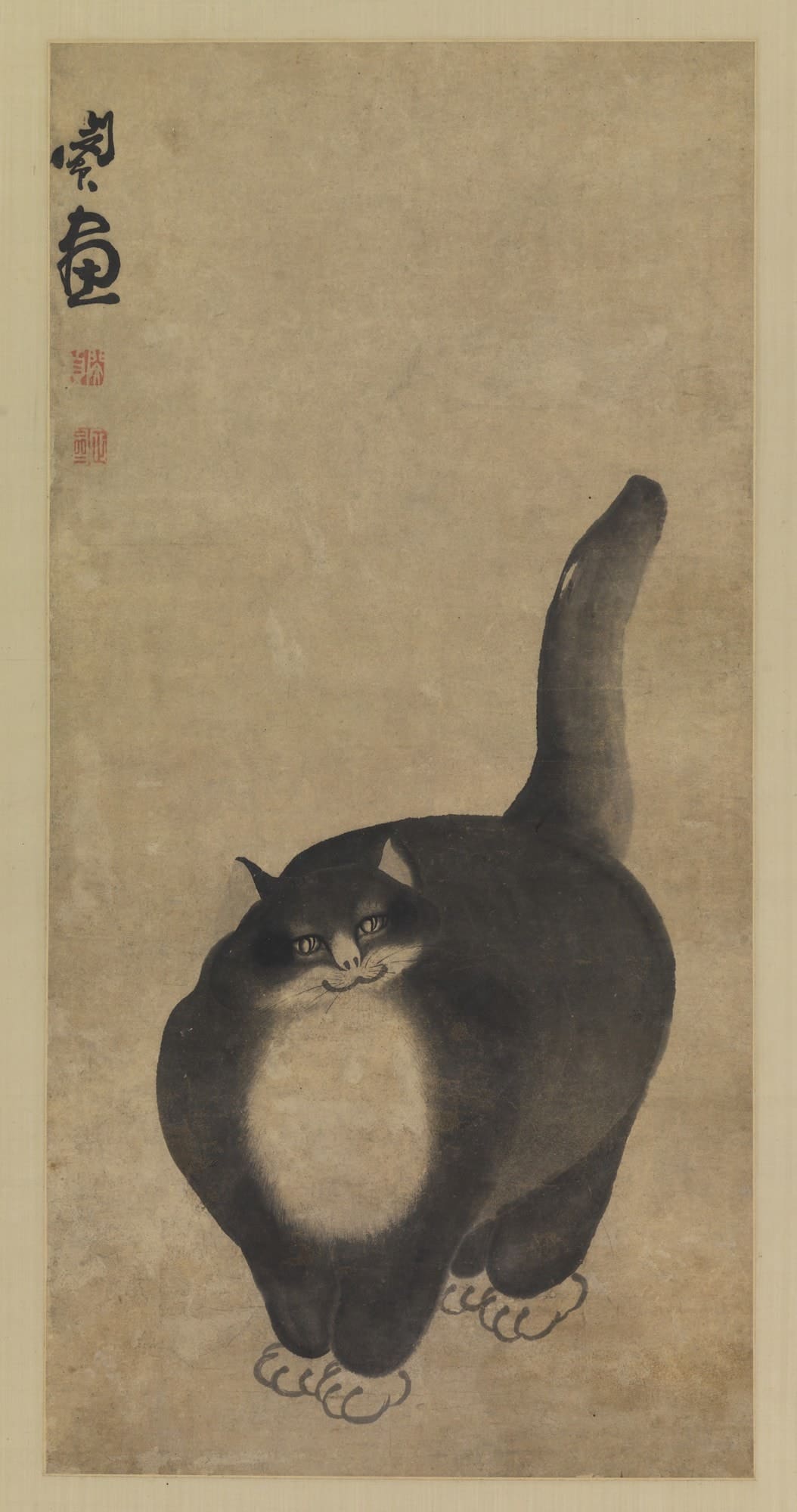
| Artist: | Min Zhen |
| Date: | 18th century |
| Medium: | Ink |
There isn’t much information about “The Black Cat” by Min Zhen. As a Chinese painter and seal carver in Hubei, Min Zhen mostly focused on painting people and the occasional finger painting. While it’s hard to say why he used a cat subject for this ink painting, it’s one of the most well-known and famous cat paintings today.
Maybe it’s the chubbiness of the cat or the feline smile, but we think that this painting inspires a sense of happiness in the viewer.

The 1800s
3. “Curiosity”
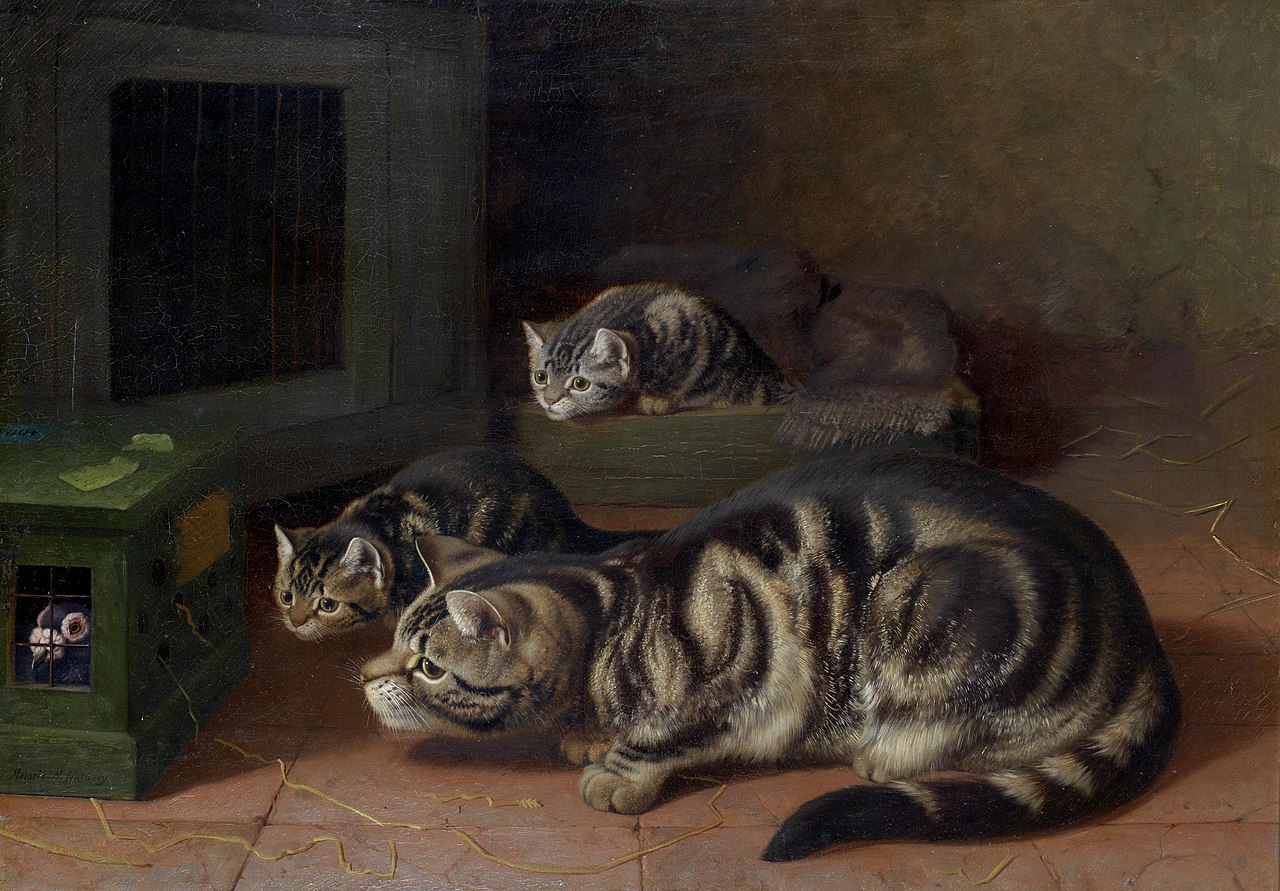
| Artist: | Horatio Henry Couldery |
| Date: | 19th century |
| Medium: | Oil |
Also known as “Kitten Couldery” due to his fascination with cats, Horatio Henry Couldery was an English artist famous for his attention to detail. He was especially gifted at giving the cats in his paintings realistic expressions and making them look fluffy enough to pet. Dogs appeared in his paintings too, albeit less often.
Most of his cat paintings feature felines getting up to all sorts of mischief, whether it’s investigating a wicker basket or stealing fresh fish. “Curiosity” is no different, and all three kitties are intrigued by the caged pigeon featured in the painting.
4. “The Cat’s Lunch”
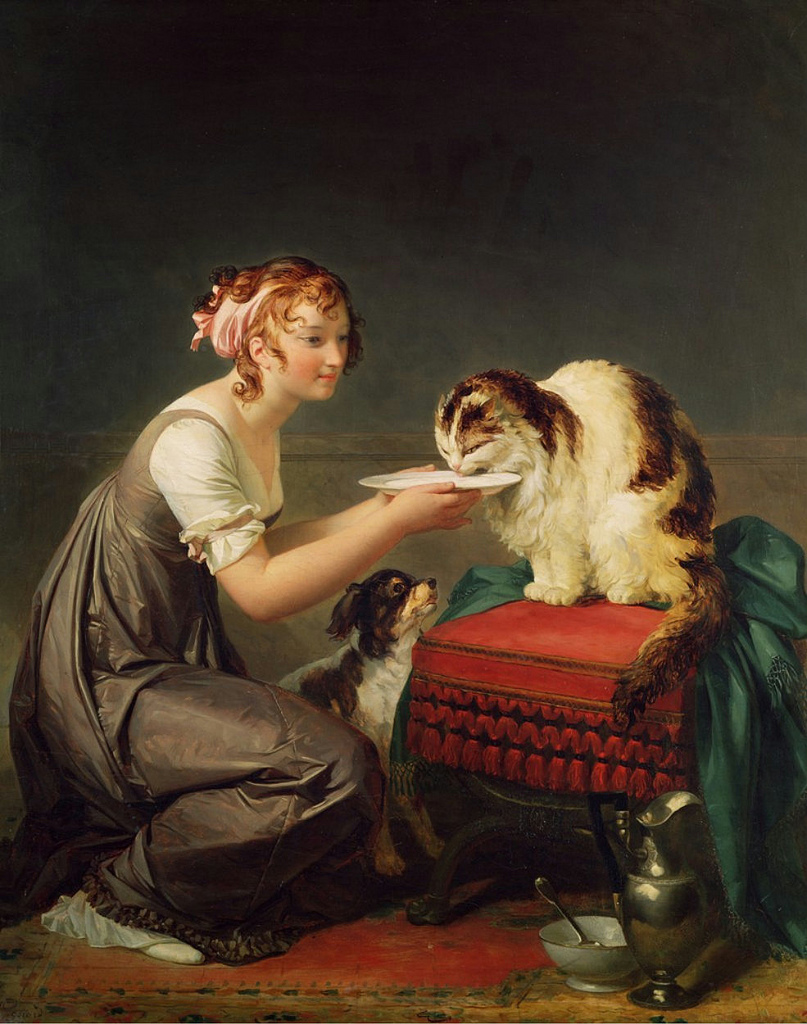
| Artist: | Marguerite Gérard |
| Date: | 1800 |
| Medium: | Oil |
Although many female artists weren’t as celebrated as their male counterparts, Marguerite Gérard was one of the best female painters around at the turn of the 19th century. Like her brother-in-law, Jean-Honoré Fragonard, Gérard included cats in many of her works.
“The Cat’s Lunch,” painted in 1800, is one of many of her paintings featuring a cat. It’s the perfect example of a cat’s power over their human subjects. But despite the tranquility of the setting, with the dog sitting so close, we can’t help but feel an encroaching sense of disaster.
5. “Gabrielle Arnault as a Child”
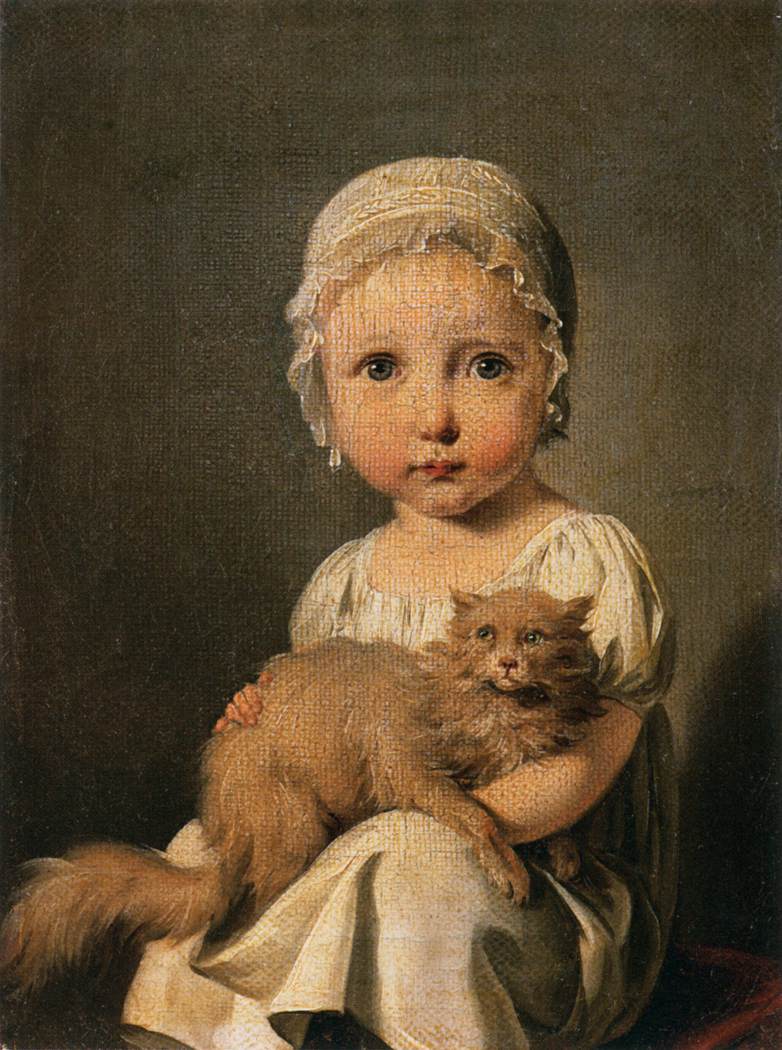
| Artist: | Louis-Léopold Boilly |
| Date: | 1815 |
| Medium: | Oil |
The son of a woodcarver in Arras, Louis-Léopold Boilly is a French artist who became popular around the turn of the 19th century. Mostly self-taught, he became famous for his family portraits and paintings of domestic scenes.
Although he didn’t often feature cats in his work, his 1815 painting, “Gabrielle Arnault as a Child,” is still popular today. Both the cat and the girl in this painting, along with the careful use of colors, create a sense of childlike innocence and wonder. While many people remark on how well Boilly captured Gabrielle Arnault, we cat-lovers agree that it’s the cat that wins the show!
6. “The Cat at Play”
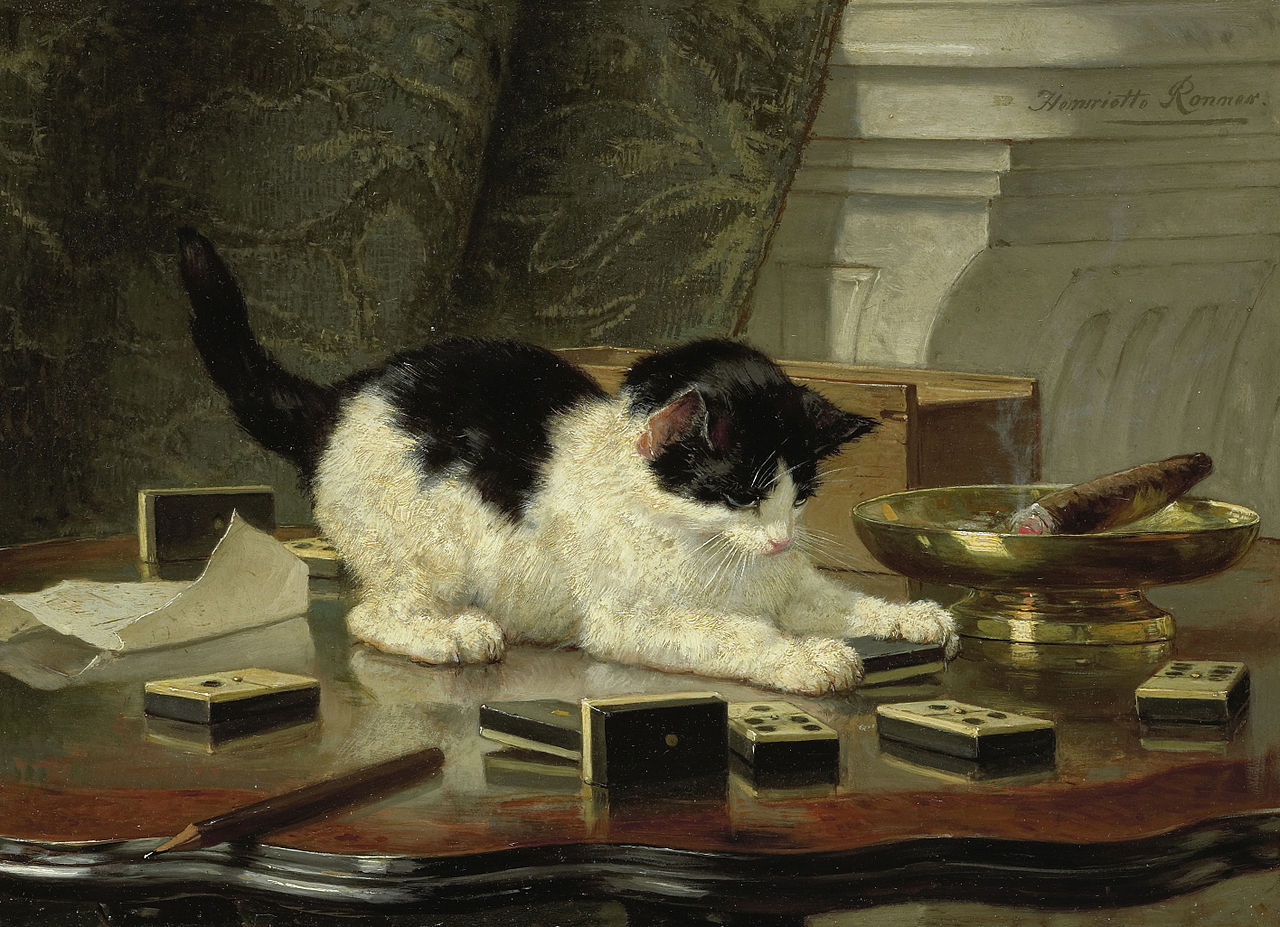
| Artist: | Henriëtte Ronner-Knip |
| Date: | 1860–1878 |
| Medium: | Oil |
If you’ve owned cats, you’ll know how much mischief they can get up to whenever they’re feeling playful. Henriëtte Ronner-Knip’s oil painting, “The Cat at Play,” is a realistic take on the playful nature of kittens in particular.
Originally taught by her father, Ronner-Knip started out painting animals, farms, and forests in both watercolors and oils. It wasn’t until the 1850s that she began to focus primarily on cats and dogs, and her work in the 1870s is the most recognized today.
7. “The Cook and the Cat”
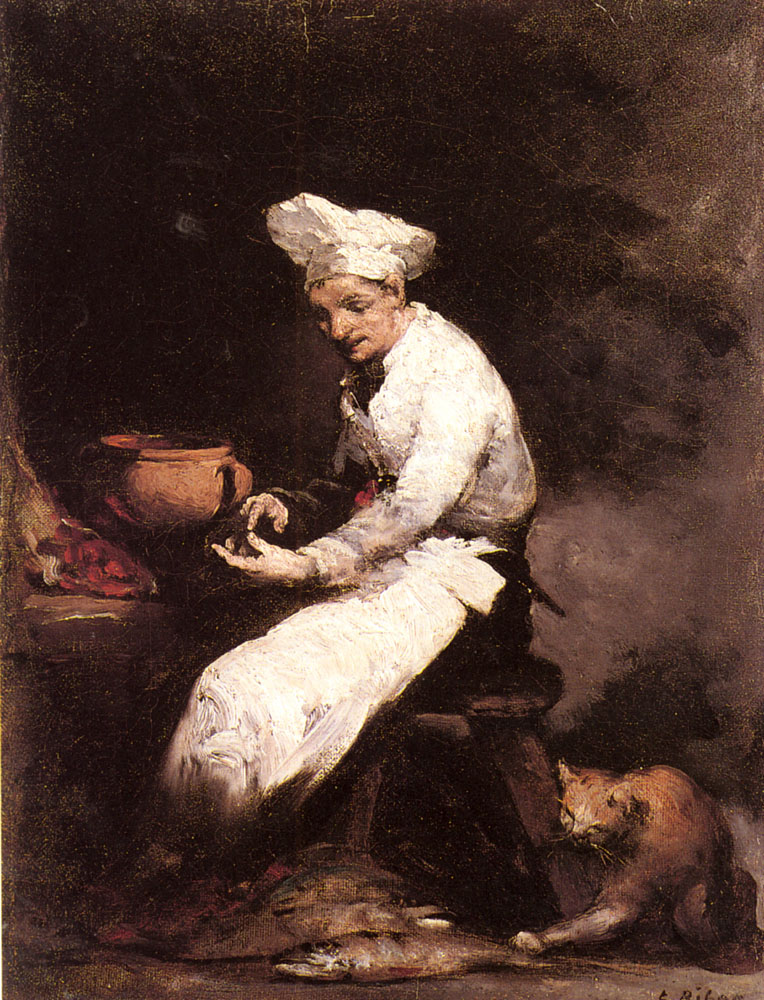
| Artist: | Théodule-Augustin Ribot |
| Date: | 1860 |
| Medium: | Oil |
One thing that’s certain about cats is how they can get underfoot whenever there’s food around. Unlike dogs, which you can convince to stay out of the kitchen while you’re cooking, cats are a little more purr-sistent.
“The Cook and the Cat,” by Théodule-Augustin Ribot, might focus on the cook himself, but his feline helper is the true star here. In this famous cat painting you can almost hear the exasperated sigh from the cook as his beloved cat tries to steal a snack or two.
8. “A White Cat Playing With a String”
| Artist: | Utagawa Hiroshige II |
| Date: | 1863 |
| Medium: | Ink |
While Western paintings have always focused on oils before other mediums, Eastern artists—in Japan and China, for example—focused on ink paintings. These featured anything from mountains to cats, like this painting of a white cat playing with string.
Painted in 1863 by a Japanese artist, Utagawa Hiroshige II, “A White Cat Playing With a String” is an artwork that focuses on a cat’s playful nature. It might be painted in a much simpler style than Henriëtte Ronner-Knip’s work, but Hiroshige II captured both the grace and mischief of cats all the same.
9. “Girl and Cat”
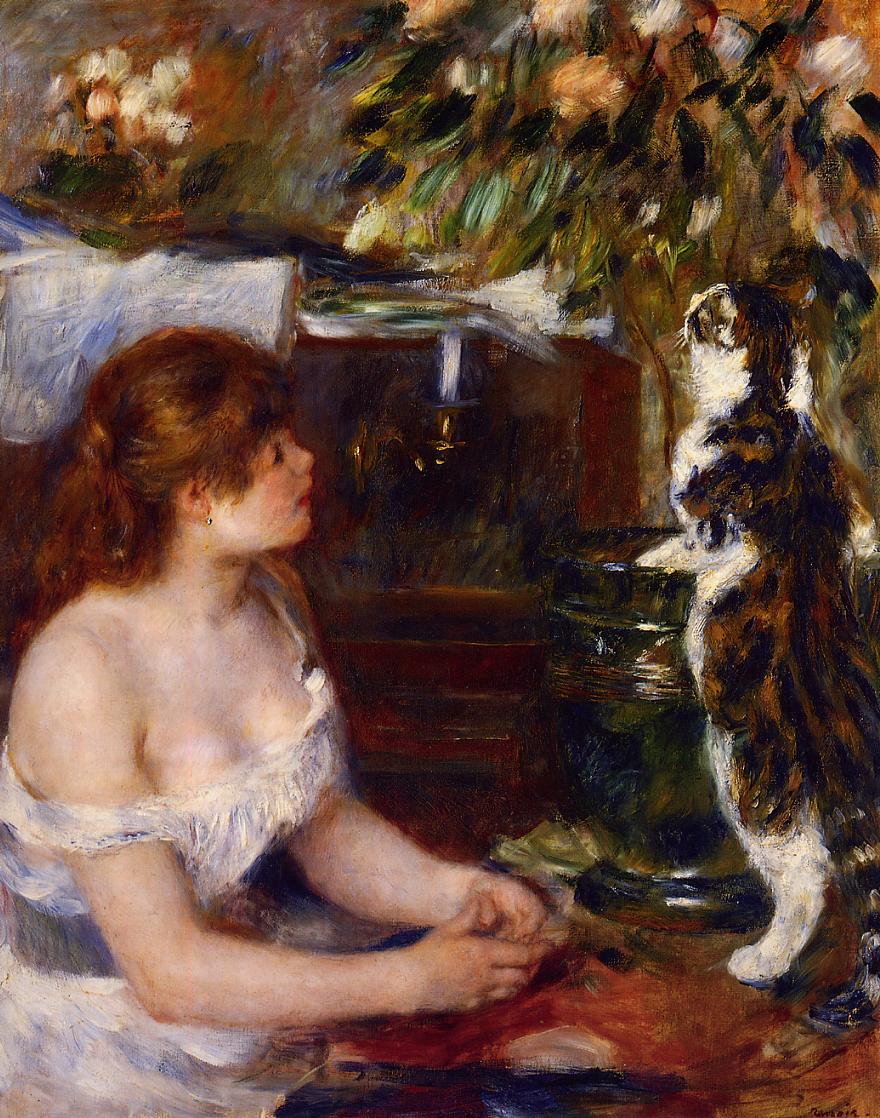
| Artist: | Pierre-Auguste Renoir |
| Date: | 1881–1882 |
| Medium: | Oil |
Pierre-Auguste Renoir’s love of cats is evident throughout all his paintings. He used an Impressionist style and featured cats in many of his works, including this piece, “Girl and Cat.”
Both the girl and the cat appear to be fascinated by the flowers in the background. Knowing how focused cats can be when interested in something, it’s no surprise that the girl is curious about what’s caught the kitty’s eye. Or perhaps she’s making sure her playful feline doesn’t knock over her flowers. But with cats, who knows?
10. “Julie Manet”
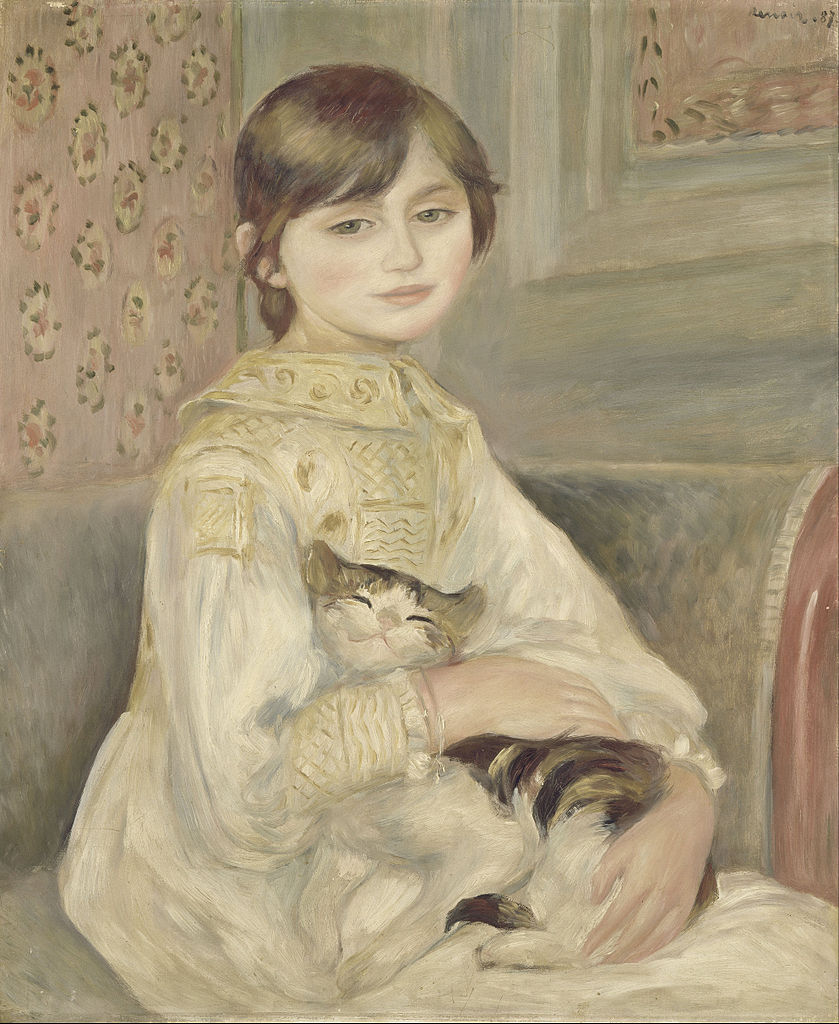
| Artist: | Pierre-Auguste Renoir |
| Date: | 1887 |
| Medium: | Oil |
Another painting that shows Renoir’s love of cats is this portrait of Julie Manet. Her parents, who were friends with Renoir, commissioned the work in 1887. The painting itself stepped away from Renoir’s usual Impressionist style, which upset many of his friends at the time. The Manets, however, appreciated the care and effort that Renoir put into the work.
While young Manet is the intended focus of this painting, we think that the real star is the cat curled up for a nap. Looking safe and cozy, the sleeping kitty gives this painting a warm feel.
11. “Young Girl With Cat”
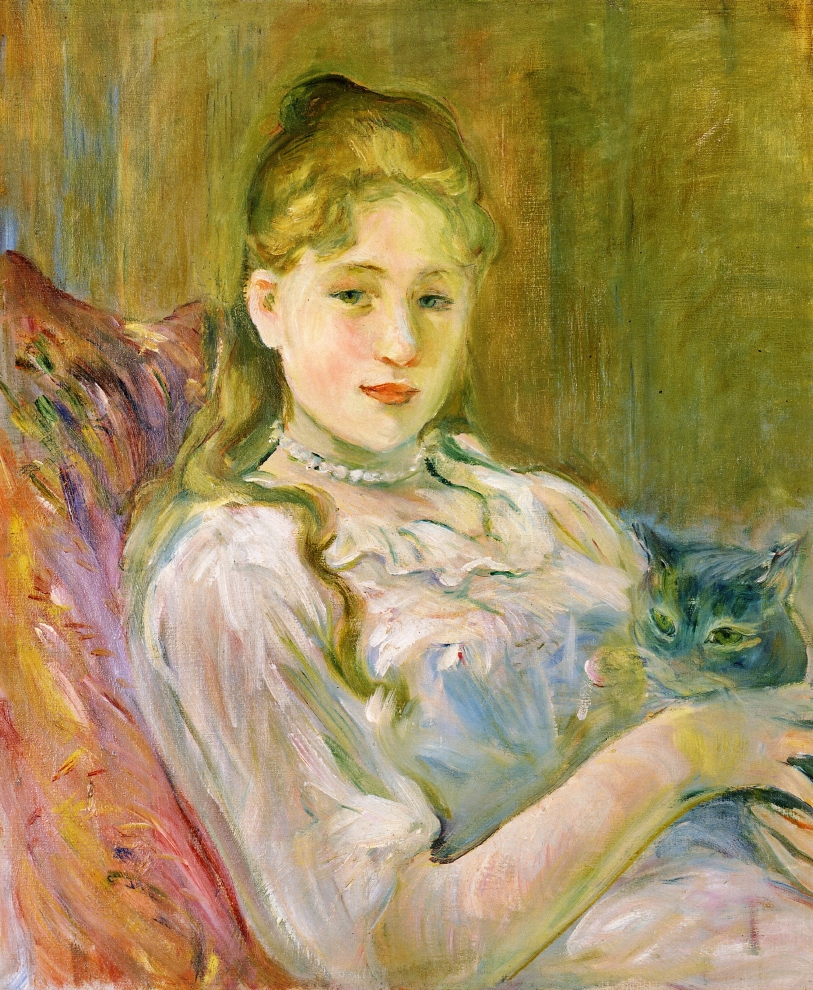
| Artist: | Berthe Morisot |
| Date: | 1892 |
| Medium: | Oil |
Arguably one of the best painters of the 19th century, Berthe Morisot was also the mother of Julie Manet, the child in the previous painting by Renoir. Like Renoir, Morisot used Impressionism to create her work.
“Young Girl With Cat” (or “Jeune Fille Avec Chat,” as it was known in the original French) uses free brushstrokes to create a relaxed atmosphere for both the girl and the cat in the painting. Many of Morisot’s works featured women in particular, and her art went a long way toward helping women feel like valued members of society.
12. “The White Cat”
| Artist: | Pierre Bonnard |
| Date: | 1894 |
| Medium: | Oil |
Drawing inspiration from Japanese artists, like the woodcut prints by Hokusai, and Paul Gauguin, Pierre Bonnard’s work bridged the gap between the old Impressionist styles with modern Expressionism. His work relied on bold colors and decorative elements.
“The White Cat” embodies his favorite phrase: “Art is not nature.” As such, the featured cat’s extended limbs and squashed torso make it a humorous caricature rather than an attempt at realism. X-rays of the painting have shown how much work Bonnard put into planning the painting through the use of underdrawings to adjust the position of the paws.
13. “The Bachelor Party”
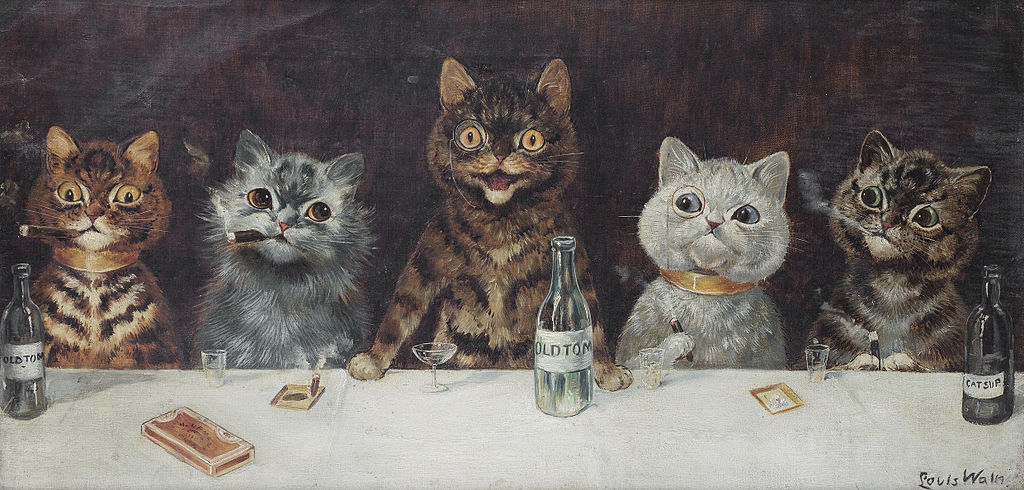
| Artist: | Louis Wain |
| Date: | 1896 |
| Medium: | Oil |
Many painters featured cats in one or two of their paintings, but Louis Wain, a British artist, focused solely on cats. “The Bachelor Party,” painted in 1896, is one of the most famous comedic artworks based on cats. It depicts a gathering of cats smoking cigars and drinking as if they were human bachelors. This particular painting shows Wain’s style well, with the too-large eyes and anthropomorphic approach.
“The Bachelor Party” is one of his most famous works and was created early in his career. His later, unpublished works displayed his mental decline. He was diagnosed with schizophrenia in 1924 and spent the rest of his life in various mental asylums. Even so, he never stopped painting his favorite feline subjects.

The 1900s
14. “Sara Holding a Cat”
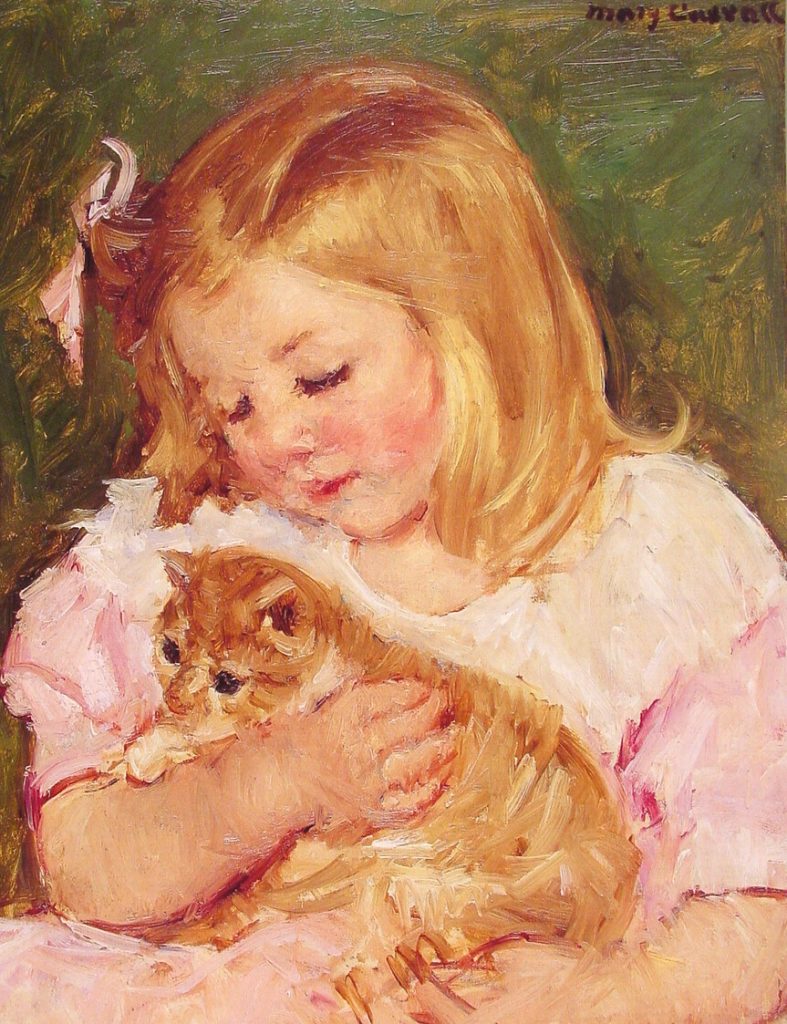
| Artist: | Mary Cassatt |
| Date: | 1908 |
| Medium: | Oil |
An Impressionist artist, Mary Cassatt was one of the most popular female painters of the late 19th and early 20th centuries, despite her father’s refusal to support her chosen career. She was also close friends with Berthe Morisot, but unlike Morisot, who featured many cats in her work, Cassatt focused mostly on children.
Despite this, “Sara Holding a Cat” is still one of the most well-known and famous cat paintings today. It was also, unfortunately, one of Cassatt’s last works. By 1914, she’d gone completely blind and was forced to give up painting altogether.
15. “The White Cat”
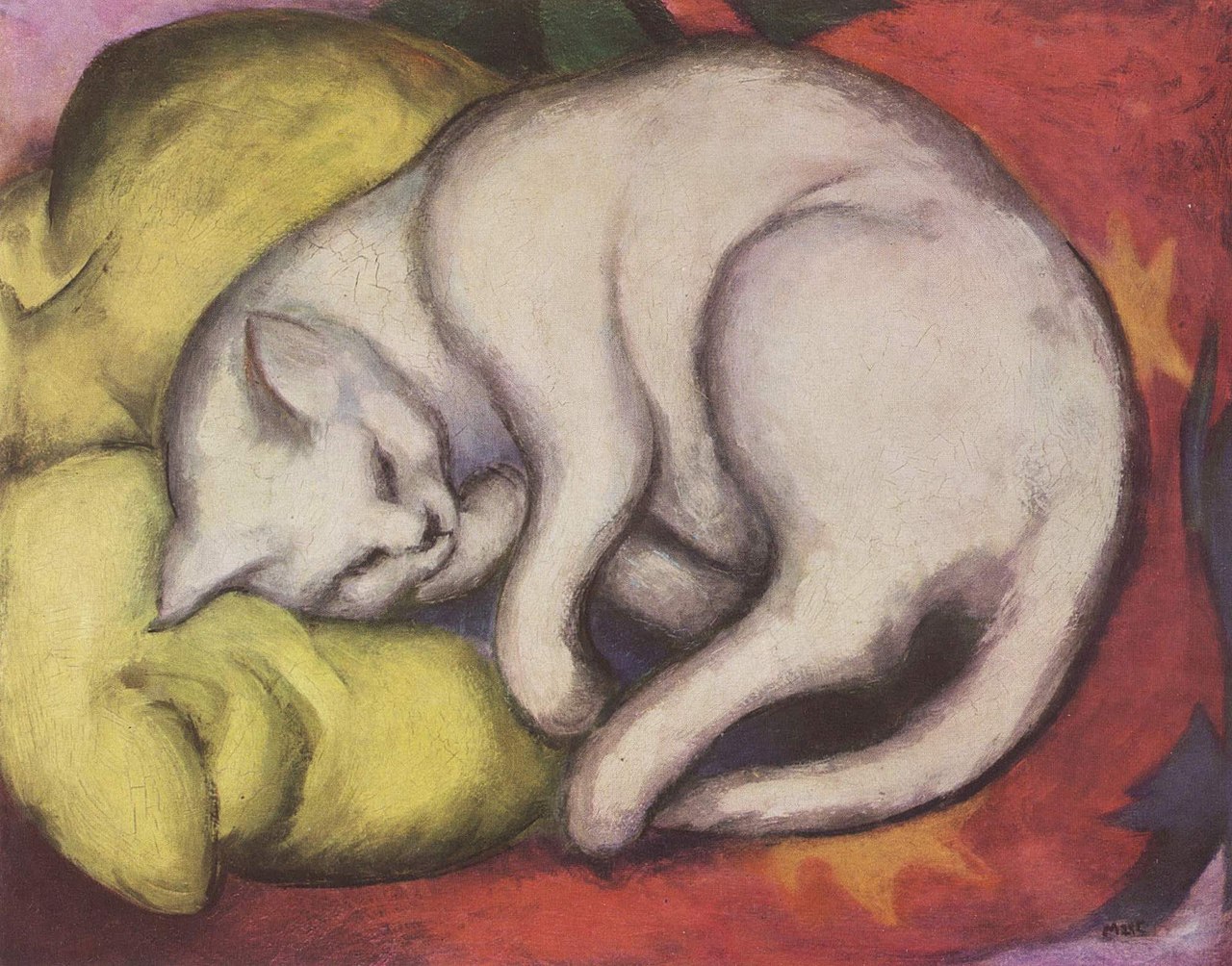
| Artist: | Franz Marc |
| Date: | 1912 |
| Medium: | Oil |
Franz Marc was well known for his simplistic art style and focus on animals. His works, like “The White Cat,” also known as “Tom Cat on a Yellow Pillow,” focus on the innocence that he saw in animals in a world corrupted by humans.
This painting in particular pairs a sleeping cat with particular colors to convey a peaceful but cheery setting. With white to denote innocence, yellow to highlight feminine joy, and red to represent life, “The White Cat” is gentle like many of Marc’s works are. It almost makes you want to curl up and take a nap too.
16. “The Bridge”
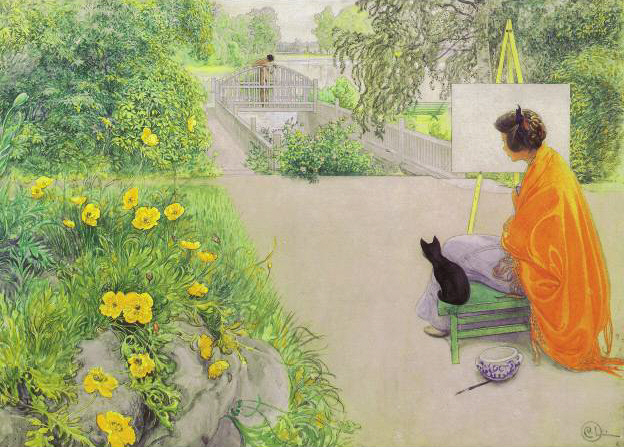
| Artist: | Carl Olof Larsson |
| Date: | 1912 |
| Medium: | Watercolor |
“The Bridge” by Carl Olof Larsson was painted with watercolors instead of the traditional oils. The painting depicts a female painter and her cat as they watch a man on a bridge, who has inadvertently gotten in the way of the woman’s intended painting.
With the bright colors and the cool morning feel of the painting, it’s a quaint, pleasant scene on its own. The addition of the cat just pulls the setting together even more.
17. “Cat With Her Kittens”
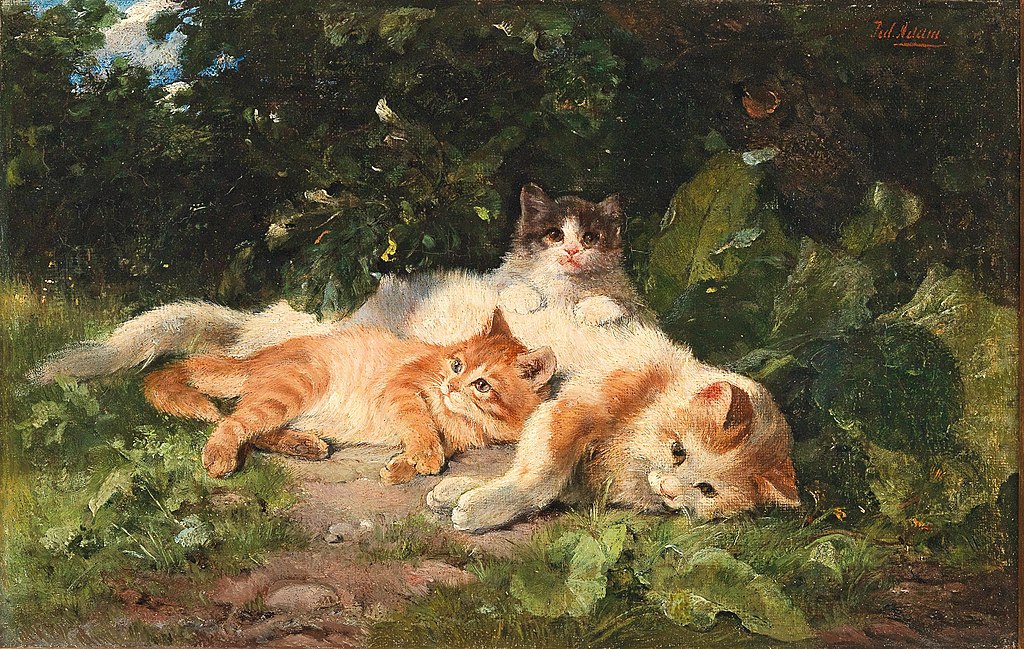
| Artist: | Julius Adam II |
| Date: | 1913 |
| Medium: | Oil |
Following in the footsteps of his ancestor, Albrecht Adam, who was famous for painting horses, Julius Adam II made his name known through painting cats. He had a similar style to Henriëtte Ronner-Knip and Louis Eugéne Lambert, other famous painters of cats.
Julius Adam II’s paintings ranged from feline portraits to mothers and kittens and even a few cats at play. Dogs feature in his work too, often as friends to the curious kittens that star most prominently in Adam’s work.
18. “By Day She Made Herself Into a Cat”
| Artist: | Arthur Rackham |
| Date: | 1920 |
| Medium: | Ink |
As a book illustrator, Arthur Rackham might not have used oils like his peers, but he often combined ink with watercolors to create his illustrations. “By Day She Made Herself into a Cat” is quite dark, and if you’ve ever read any of the Brothers Grimm fairytales, you probably understand why.
Rackham used this artwork to illustrate the tale of “Hansel and Gretel.” With the angry look in the cat’s eyes and fierce scowl, it definitely captures the gloomy and downright creepy atmosphere of the original fairytale.
19. “Raminou Sitting on a Cloth”
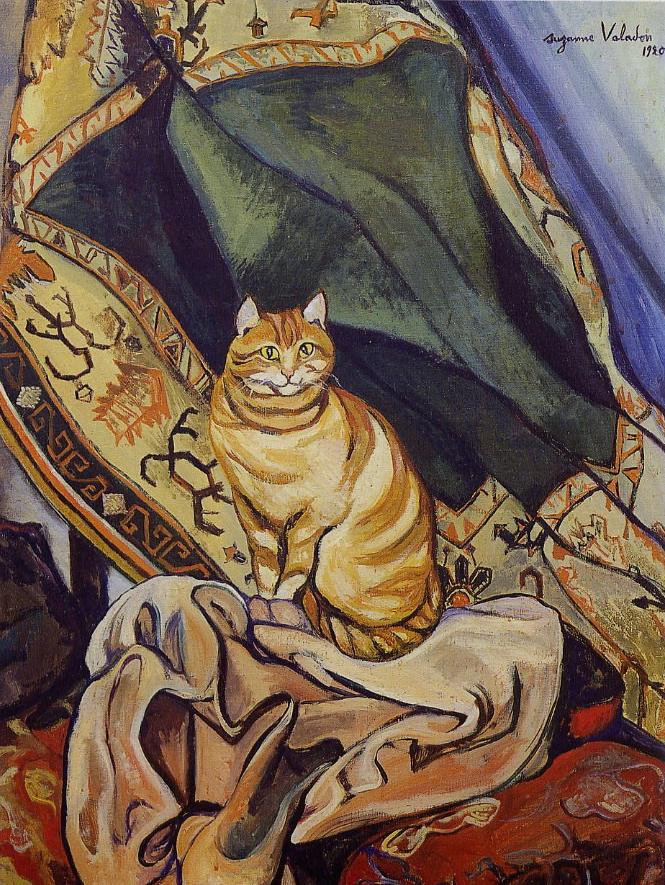
| Artist: | Suzanne Valadon |
| Date: | 1920 |
| Medium: | Oil |
Suzanne Valadon started as a trapeze artist before an accident when she was 16 forced her into early retirement. Then, she became a model for artists (including Pierre-Auguste Renoir) and gradually became interested in painting as a career. While she loved painting cats like Raminou, who was featured in at least three of her paintings, she also shocked the bourgeois society with her paintings of nude women.
“Raminou Sitting on a Cloth” is one of the many cat paintings that show how mischievous cats can be. His self-satisfied smirk and comfortable perch make us wonder whether his new favorite spot is really supposed to be sat on.
20. “Cat Catching a Bird”
| Artist: | Pablo Picasso |
| Date: | 1939 |
| Medium: | Oil |
Probably one of the strangest cat paintings is Pablo Picasso’s “Cat Catching a Bird.” Whereas many other cat paintings focus on the cute, adorable side of our feline friends, the start of World War II inspired Picasso in a much darker way.
In 1939, Picasso did not paint the war so much as hint at it in his work and rely on his usual surrealistic approach to his paintings to show his intention, which is probably why this particular painting is a bit dark. The cat, the mortally injured bird, and the neutral background only serve to increase the apocalyptical nature of the painting.

Conclusion
As cute as cats are, it’s no wonder that they’re so popular among painters throughout the ages. Something about their quiet, unassuming stoicism makes them the perfect subject to add to a painting, whether it’s a realistic portrait or a surrealistic approach to comedy.
Whether you prefer realistic scenes like Carl Larsson’s “The Bridge” or a more comedic scene like Louis Wain’s “The Bachelor Party,” we hope that you found a favorite among these paintings. Maybe they’ll inspire you to paint your own kitty portrait!
You might also like:
- 300+ Japanese Cat Names: Great Ideas for Your Exotic Cat
- Hippie Cat Names: 240 Great Ideas for Your Laid-Back Cat
Featured Image Credit: Everett Collection, Shutterstock
